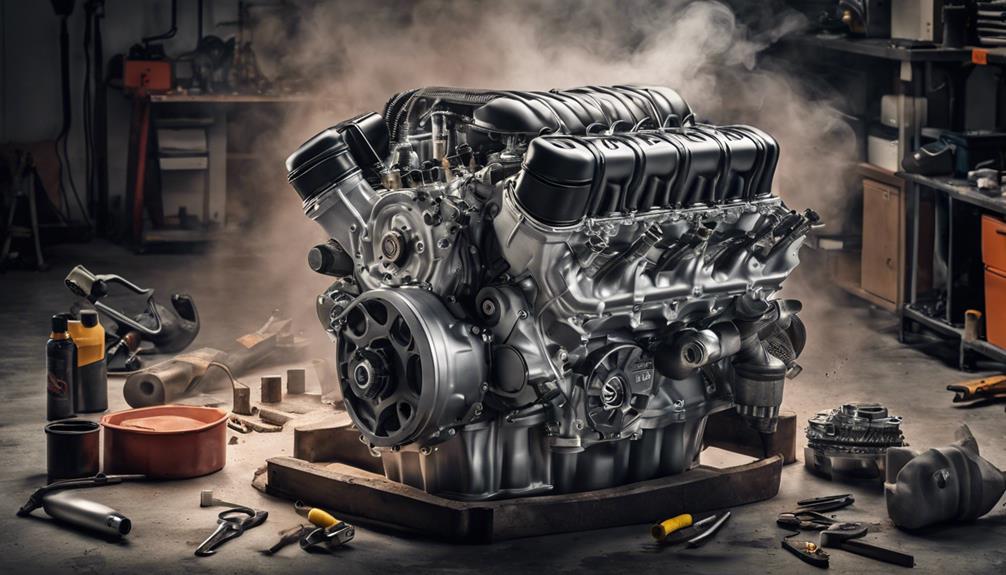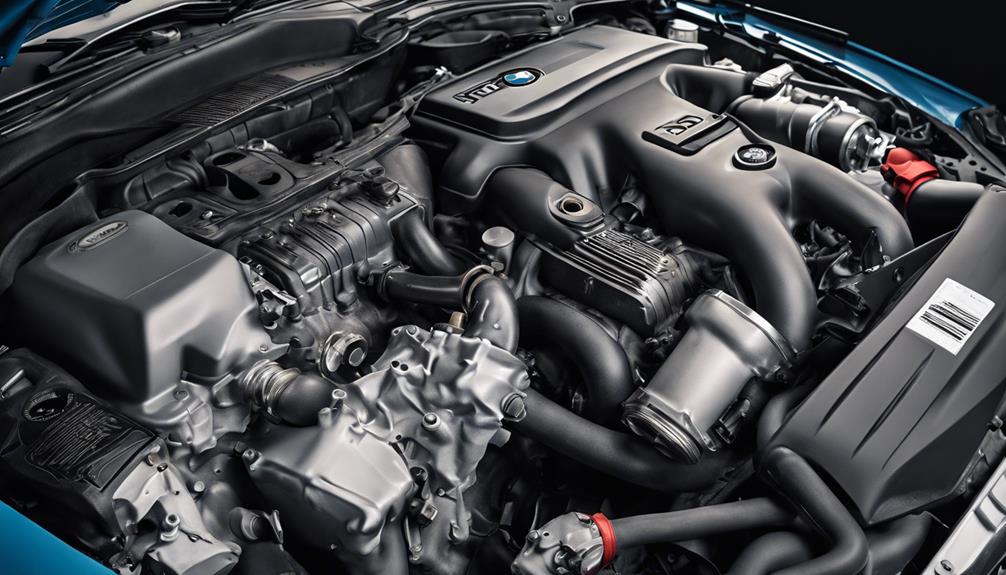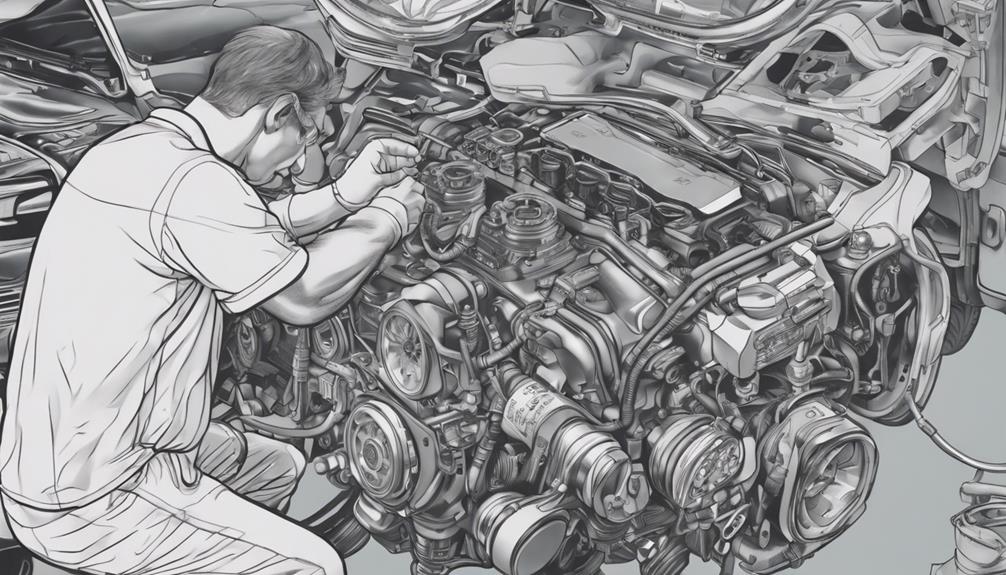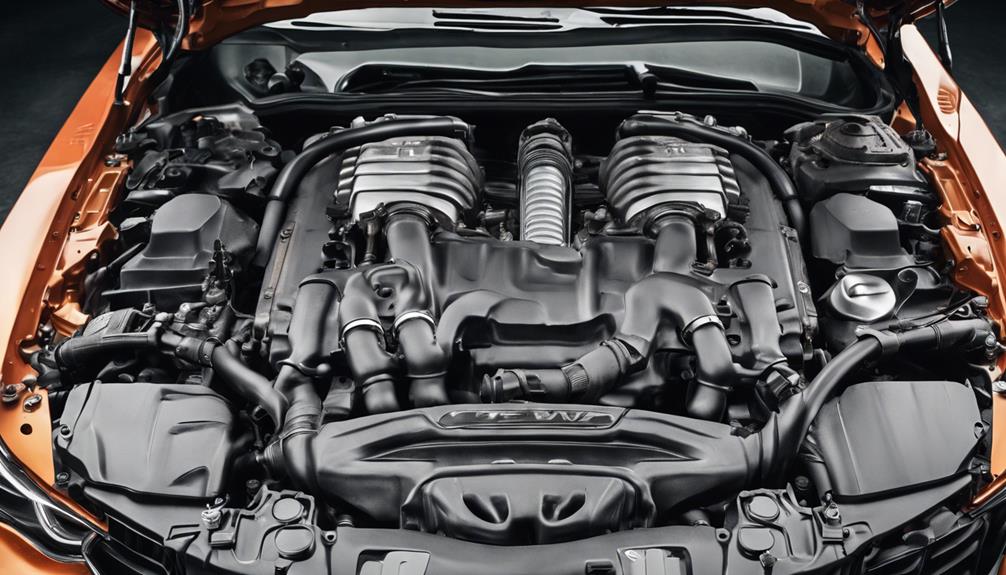If you have a BMW 118d, watch out for ignition coil failures causing power loss and rough idling, turbo issues leading to engine smoke, brake seal problems impacting safety, power steering rack faults causing tire wear, and EGR valve malfunctions shown by black exhaust smoke and surges. Address these promptly to prevent costly repairs and safety risks. Seeking professional assistance is advised, ensuring precise diagnosis and high-quality repairs. Timely attention to these common issues maintains peak performance and vehicle longevity, safeguarding your investment and safety. Discover more about maintaining your BMW 118d for peak performance and safety.
Key Takeaways
- Ignition coil failures lead to power loss and rough idling.
- Turbo issues result in excessive engine smoke and performance issues.
- Brake seal problems cause leakage and reduced brake effectiveness.
- Power steering rack faults lead to uneven tire wear.
- EGR valve issues show black exhaust smoke and acceleration surges.
Ignition Coil Failures and Power Loss
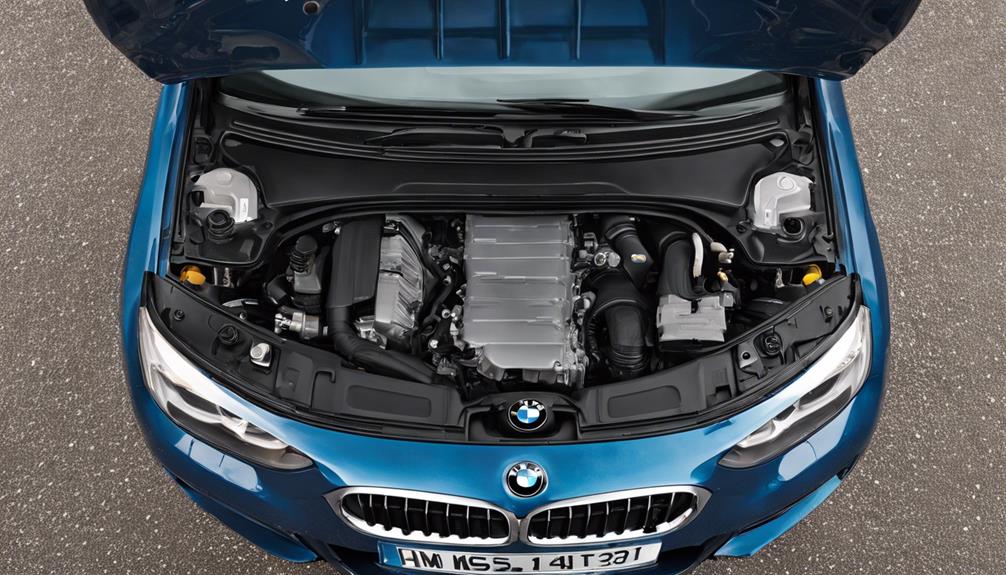
If you own a BMW 118d, ignition coil failures can result in power loss and impact your vehicle's engine performance to a great extent. Ignition coil problems are serious issues that can lead to a range of symptoms such as engine misfires, rough idling, and even difficulty starting your car.
When the ignition coil fails, it disrupts the engine's combustion process, causing the engine to run inefficiently and sometimes resulting in a noticeable loss of power while driving.
Dealing with ignition coil failures promptly is vital to prevent further damage to your BMW 118d's engine. When you notice signs of ignition coil trouble, such as rough idling or power loss, it's crucial to have the issue diagnosed and repaired by a professional mechanic.
Ignition coil replacement for the BMW 118d can be an average cost of around £71.48, but investing in this repair can help maintain your vehicle's performance and prevent more significant problems down the road.
Turbo Issues and Engine Smoke
If you notice your BMW 118d emitting excessive smoke from the engine, it could be a sign of turbo issues.
Turbo problems can affect the performance of your vehicle and may result in costly repairs.
Addressing turbo concerns promptly can help prevent further damage and maintain your BMW 118d's performance.
Turbo Performance Concerns
When experiencing turbo performance concerns in your BMW 118d, addressing them promptly is essential to maintain engine efficiency and performance. Turbo issues can lead to excessive smoke from the engine, indicating potential underlying problems with the turbocharger. Ignoring these signs can not only affect performance but also lead to more significant and costly repairs down the line. To give you an idea of the potential costs involved, the average replacement cost for turbo problems in a BMW 118d is around £1,317.16. It's advisable to seek professional help through services like WhoCanFixMyCar for accurate quotes and efficient repairs. Taking swift action when noticing turbo performance concerns can help preserve your BMW's engine efficiency and overall performance.
| Turbo Performance Concerns | ||
|---|---|---|
| Signs | Potential Causes | Action Required |
| Excessive Smoke | Turbocharger Issues | Seek Professional Help Promptly |
| Reduced Power | Turbo Malfunction | Diagnostic and Repair Assistance |
| Loud Whistling Sound | Boost Leak | Inspection and Maintenance Needed |
Smoke From Exhaust
Experiencing smoke from the exhaust of your BMW 118d could indicate underlying turbo issues that require immediate attention to prevent further complications and maintain peak engine performance. Here are some key points to take into account:
- Turbocharger Issues: Smoke from the exhaust may indicate problems with the turbocharger, impacting engine performance.
- Repair or Replacement: Turbo issues in the BMW 118d may require repair or replacement, with costs averaging around £1,317.16 for a new turbo.
- Costly Repairs: Dealing with turbo problems can be expensive, highlighting the importance of addressing these issues promptly to avoid additional expenses in the future.
If you notice excessive smoke from your BMW 118d's exhaust, it's essential to have the turbocharger inspected and repaired by professionals to guarantee proper functioning and prevent further damage.
Brake Seal Problems and Efficiency
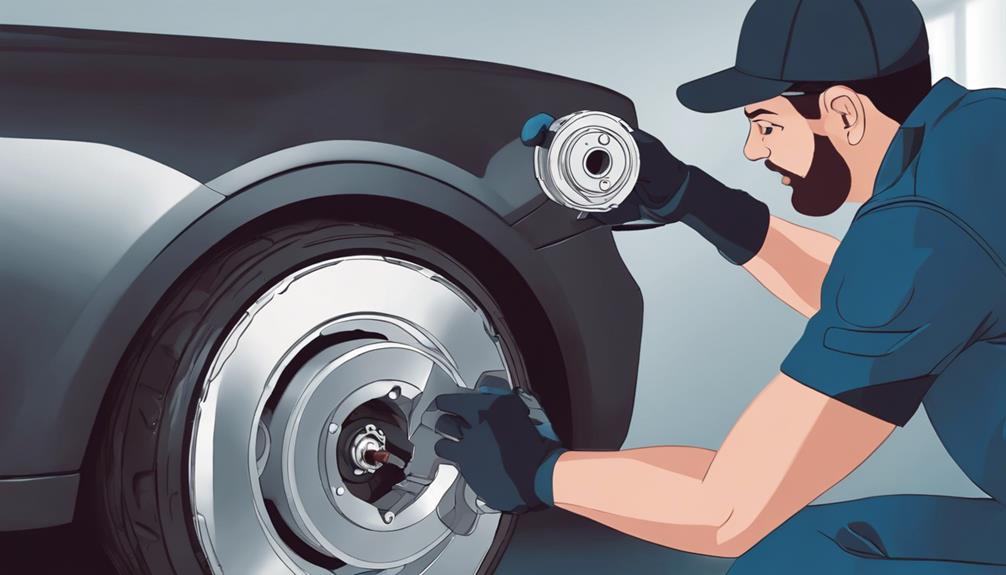
If you're facing brake seal issues in your BMW 118d, you may encounter problems with seal leakage impacting your brake system's effectiveness.
This can result in reduced brake performance, potentially jeopardizing your safety on the road.
Promptly addressing these seal issues is crucial to guarantee your brakes function at their best and keep you safe while driving.
Seal Leakage Issues
Addressing seal leakage promptly in your BMW 118d is essential for ensuring peak brake system efficiency and safety on the road. When seal leakage issues arise, they can lead to decreased brake effectiveness, posing potential safety concerns.
To tackle this problem effectively, consider the following:
- Regular Inspections: Schedule routine checks to detect seal leakage early.
- Prompt Repairs: Address any seal leakage problems immediately to prevent further damage.
- Professional Assistance: Seek help from qualified technicians who can assess and repair brake seal issues efficiently.
Brake Performance Concerns
Detecting early signs of brake seal problems in your BMW 118d is crucial for maintaining peak brake performance and ensuring road safety.
Brake seal issues can significantly impact brake system efficiency, leading to decreased brake performance and raising safety concerns. It is important to address these problems promptly at a reputable garage to restore ideal brake functionality.
Neglecting brake seal issues can compromise safety and result in more costly repairs later on. The average cost for brake repairs on a BMW 118d is around £643.90, emphasizing the importance of investing in proper maintenance and timely repairs for safe driving experiences with your BMW 118d.
Power Steering Rack Faults and Tire Wear
Drivers of the BMW 118d may encounter power steering rack faults that can lead to uneven tire wear and compromised safety on the road. Here's what you need to know:
- Power Steering Rack Faults: Issues with the power steering rack can result in misaligned front wheels, causing uneven tire wear over time.
- Uneven Tire Wear: When the power steering rack is faulty, the front wheels may not be aligned correctly, leading to uneven tire wear patterns that can impact the overall performance and safety of your vehicle.
- Safety Concerns: It's essential to address power steering rack faults promptly to guarantee tire performance and maintain safety standards on the road.
If you notice any signs of power steering problems such as difficulty steering, unusual noises, or uneven tire wear, it's advisable to have your BMW 118d inspected by a professional. Addressing these issues early can prevent further damage and ensure a smoother driving experience.
Safety Concerns and Costly Repairs
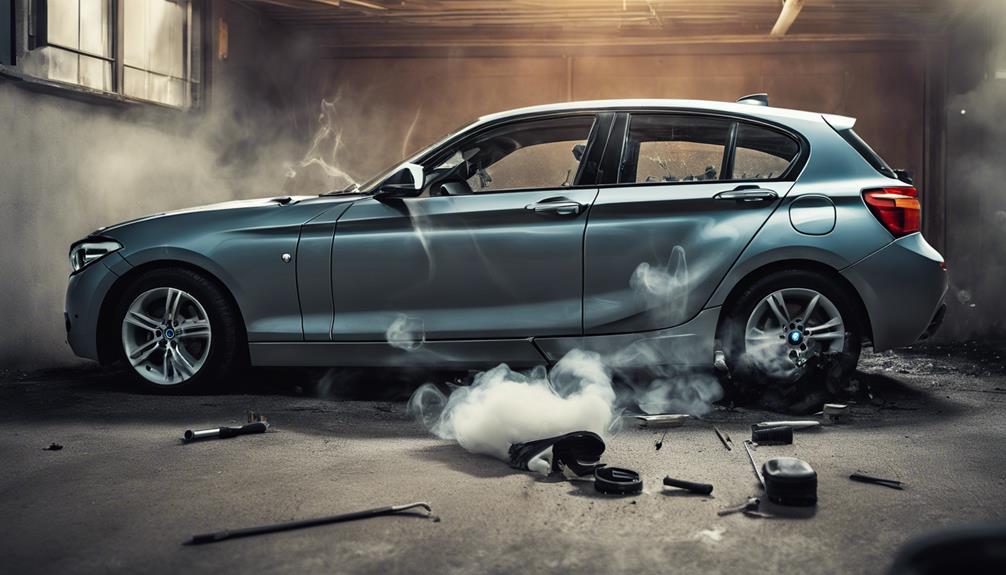
If you own a BMW 118d, it's important to be aware of potential safety concerns such as ignition coil failures and turbo issues that could lead to engine smoke. Ignition coil replacement costs an average of £71.48, while turbo replacements can set you back around £1,317.16, impacting both safety and your wallet.
Additionally, brake seal problems can affect brake efficiency, with repairs averaging £643.90, making it essential to stay on top of maintenance to guarantee safety on the road.
Safety Features Overview
To guarantee the safety and reliability of your BMW 118d, understanding the potential safety concerns and the associated costly repairs related to its safety features is essential. Here's an overview to help you comprehend better:
- Airbags: Confirm your airbags are functioning correctly to provide excellent protection in case of a collision.
- Stability Control and Traction Control Systems: These systems help maintain stability and prevent skidding, enhancing overall safety while driving.
- Module Reprogramming: Regular updates and recalibration of modules are important for the proper functioning of safety features, avoiding potential malfunctions.
Keeping these safety features in check through regular maintenance can significantly decrease the risk of accidents and ensure your BMW 118d's safety standards are met.
Common Repair Expenses
Regularly monitoring and addressing potential safety concerns and costly repairs in your BMW 118d is essential for maintaining its performance and reliability. Ignition coil failure can lead to loss of power and engine backfiring, necessitating timely attention.
Turbo problems, indicated by excessive smoke from the engine, may require a costly replacement averaging £1,317.16.
Brake issues, like seal problems, can impact brake efficiency, with repairs costing around £643.90.
Power steering problems can cause uneven tire wear and misaligned front wheels, requiring an average repair cost of £122.43.
Keep an eye out for EGR valve problems, noticeable through black exhaust smoke and acceleration surges, with an average replacement cost of £331.91.
Addressing these issues promptly can help you avoid more significant problems down the line.
Maintenance Cost Analysis
Monitoring the maintenance costs associated with safety concerns and costly repairs on your BMW 118d is crucial for ensuring excellent performance and reliability. Here's a breakdown of potential expenses to ponder:
- Power Steering: Addressing issues with the power steering rack to prevent uneven tire wear can cost around £300.
- Ignition Coil Failure: The average cost for ignition coil replacement on a BMW 118d is £71.48.
- Brake Seal: Repairing brake seal problems to maintain peak brake efficiency can range from £150 to £300.
Keeping an eye on these maintenance costs can help you budget effectively and keep your BMW 118d running smoothly. Regular checks and timely repairs can prevent more significant issues down the road.
Average Replacement Costs
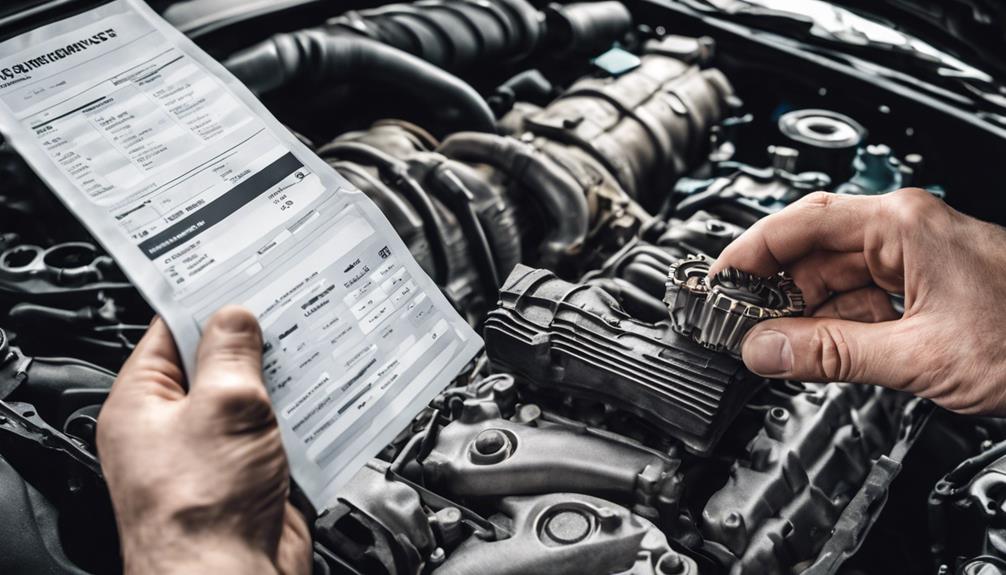
When maintaining your BMW 118d, it's important to be aware of the average replacement costs for common parts. Ignition coil replacements typically cost around £71.48, while turbo replacements can be more significant at an average of £1,317.16.
Brake repairs for your BMW 118d may run you about £643.90 on average. Power steering repairs tend to be more affordable in comparison, averaging around £122.43.
If you encounter issues with the EGR valve, be prepared for a replacement cost of approximately £331.91. Being informed about these average replacement costs can help you budget and plan for any unexpected repairs that may arise with your BMW 118d.
Remember to stay proactive in your car's maintenance to potentially avoid some of these costs.
Professional Assistance Recommended
For effective diagnosis and repair of common issues with your BMW 118d, it's recommended to seek professional assistance. When facing problems with your vehicle, especially concerning components like the power steering or engine, relying on the expertise of a trained mechanic or BMW specialist is important. Here are three key reasons why professional assistance is essential:
- Specialized Knowledge: Professionals have the necessary training and experience to accurately diagnose complex issues that may arise with your BMW 118d.
- Proper Tools: Specialized tools and equipment are often required to address specific problems effectively, which professionals possess to make sure the job is done correctly.
- Prevent Further Damage: Attempting DIY repairs on intricate systems like the engine or power steering without proper expertise can lead to more extensive damage and costly repairs down the line.
Timely Repairs for Common Issues

To maintain the best performance and longevity of your BMW 118d, addressing common issues through timely repairs is crucial. Neglecting problems like turbo issues, brake repairs, power steering issues, and EGR valve issues can lead to more significant complications and higher repair costs down the road. By promptly attending to these issues, you can guarantee the peak functioning of your vehicle and enhance its safety on the road.
| Common Issues | Average Cost (£) | Importance |
|---|---|---|
| Turbo Issues | £1,317.16 | Prevent excessive smoke from the engine |
| Brake Repairs | £643.90 | Maintain brake system efficiency |
| Power Steering | £122.43 | Prevent uneven tire wear and misalignment |
| EGR Valve Issues | £331.91 | Address black smoke and acceleration surge |
Addressing BMW 118d Problems
Dealing with typical issues with your BMW 118d promptly is important to guarantee peak performance and longevity of your vehicle. Here are some key steps to address common problems:
- Power Steering: If you notice difficulty in steering, strange noises, or leaking fluid, have the power steering system checked immediately to prevent further damage. Ignoring these signs can lead to more severe issues like uneven tire wear.
- Ignition Coil Failure: In case you experience a loss of power, engine backfiring, or the check engine light turns on, it might indicate ignition coil problems. Getting this addressed promptly can prevent further damage to the engine and ensure optimal performance.
- Brake Seal: Keep an eye out for any signs of brake fluid leaks or reduced brake responsiveness. Addressing brake seal issues promptly is essential for your safety on the road and to maintain the efficiency of your braking system.
Importance of Seeking Help

Addressing common issues with your BMW 118d promptly by seeking professional help can prevent further damage and guarantee your safety on the road. When it comes to your vehicle, issues like power steering malfunctions, brake problems, tire wear, and ignition coil issues can have a notable impact on your driving experience. By seeking help from experienced technicians, you can make sure that these problems are dealt with effectively, maintaining your car's performance and safety standards.
To emphasize the importance of seeking professional help, consider the following table:
| Common Issues | Importance of Seeking Help |
|---|---|
| Power Steering Problems | Prompt assistance can prevent accidents and ensure control. |
| Brake Malfunctions | Timely repairs can prevent accidents and ensure stopping power. |
| Tire Wear | Addressing issues early can prevent uneven wear and alignment problems. |
| Ignition Coil Troubles | Professional help can prevent engine misfires and maintain performance. |
Frequently Asked Questions
Is the BMW 1 Series 118d Reliable?
Yes, the BMW 1 Series 118d is reliable. Owners praise its robust performance and minimal issues. It ranks well in surveys for reliability and satisfaction. Your decision to choose the 118d reflects a wise choice in the compact car segment.
What Are the Common Faults on a BMW 1 Series?
When owning a BMW 1 Series, watch for engine stalling, backrest folding in a collision, EGR leaks, limp home mode, propshaft joint failures, fuel pump issues, power steering failures, ignition coil problems, fuel pump failures, and transmission issues.
Is BMW 1 Series Cheap to Maintain?
Maintaining a BMW 1 Series, like the 118d, can be affordable compared to other luxury cars. Costs vary based on factors like age and mileage. Routine tasks such as oil changes and brake pad replacements contribute to ownership costs.
What Is the Mileage of BMW 118d Diesel?
You can expect the BMW 118d diesel engine to achieve a mileage of around 45-50 mpg in combined driving conditions. This model's fuel efficiency, ideal for economical driving, is enhanced by the longer driving range on a full tank compared to petrol variants.
Conclusion
If you own a BMW 118d, it's important to be mindful of the common problems that may arise. These include ignition coil failures, turbo issues, brake seal problems, and power steering rack faults.
Seeking professional assistance for timely repairs is essential to guarantee the safety and efficiency of your vehicle. By addressing these issues promptly, you can prevent costly repairs and maintain the performance of your BMW 118d for years to come.






